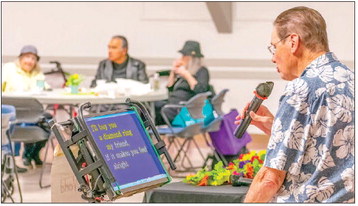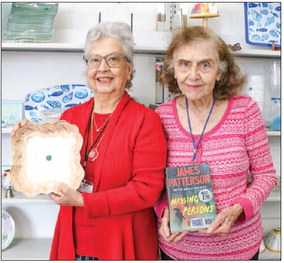Recognizing Elder Abuse


by Cindy Tostado, LCSW
GRF member resource and assistance liaison
The abuse of elders and dependent adults occurs at all income levels, gender, race, ethnicity, educational background and geographic locations. Older adults age 65 and up and dependent adults age 18 to 65 are often targeted. Victims will often live in silence, unwilling to seek assistance for fear of retaliation, embarrassment, fear that nobody will believe them or fear of being alone.
Unfortunately, more and more older and dependent adults are falling prey to being victimized and abused.
The Orange County Health Care Agency reports that over 225,000 Californians become victims each year, but experts believe the problem to be much larger.
Many times, victims remain unnoticed and untreated because they are isolated. Abuse is often divided into four main categories: physical, neglect, psychological or emotional, and financial. Other types of abuse may include isolation, abandonment or abduction. Self-neglect can be detrimental to an individual’s well-being and should also be reported. Individuals are most often the victims of multiple kinds of abuse.
Recognizing the Warning Signs of Abuse: Physical Abuse
•Injuries that are incompatible with explanations.
•Bruises, scratches or other injuries.
•Inappropriate use of a physical restraint or medication.
Neglect and Self-Neglect
•Poor hygiene, dirty or torn clothes or lack of appropriate shelter.
•Medical conditions that go untreated.
•Malnutrition and dehydration.
Psychological or Emotional Abuse
•Elderly or dependent adult is withdrawn, secretive or hesitant to talk freely around caregiver.
• Family members or caregivers isolate the elder or dependent adult, restricting contact with other family members or friends.
Financial Abuse
• Unusual bank account activity including unexplained ATM withdrawals.
• Unpaid bills, eviction notices or discontinued utilities.
• Implausible explanations given about an elder or dependent adult’s finances.
• Changes in spending patterns often accompanied by the appearance of a new “best friend.”
• It is very difficult to tell if a telemarketing call is legitimate. Be cautious and do not let any caller intimidate you. Do not ever be afraid to hang up.
• Legitimate companies and organizations will not request payment in the form of gift cards. If you receive an unsolicited call from a bank, Apple, Amazon, SCE, etc. requesting payment or sensitive information, such as Social Security numbers or passwords, hang up and call the company directly.
If you suspect elder abuse, call Orange County Adult Protective Services’ 24-Hour Hotline at (800) 451-5155.
• After the report, a social worker will respond immediately in an emergency or within 10 calendar days of the report.
• Names of reporting parties are confidential and will not be revealed to the victim, their family, or the alleged abuser.
• The elder or dependent adult will be given options to keep him/ her safe from harm.
• The victim and their family members can be linked with appropriate community resources.
• Unaware family members and friends can be alerted to step in and help.
• The APS social worker can assist victims and their families in developing individualized care plans.
• The reporter can feel relief in knowing that a professional is assessing the situation.
• APS social workers cannot remove clients from their homes.
• APS social workers do not provide psychiatric assessments.
• For psychiatric emergencies, call police and/or the Centralized Assessment Team at (714) 517-6353.
Mandated Reporters
Under California law, certain individuals are legally mandated to report known or suspected instances of elder abuse.
Mandated reporters who fail to report may be guilty of a crime (California Welfare and Institutions Code section 15630). The following is a partial list of mandated reporters:
• Physicians and medical professionals
• Clergy
• Bank employees
• All employees of health care facilities, such as hospitals, skilled nursing facilities, adult day care centers and residential care facilities.
• Any individual who assumes responsibility for the care or custody of an elderly or dependent person.
Prevention is Key
Protect yourself and those you love by recognizing the signs of abuse and reporting suspicions to Adult Protective Services.
Whether you are a victim or suspect the abuse of someone you know, you are not alone when seeking help.
Remember: If you suspect abuse, report it. In an emergency, always call 911.




